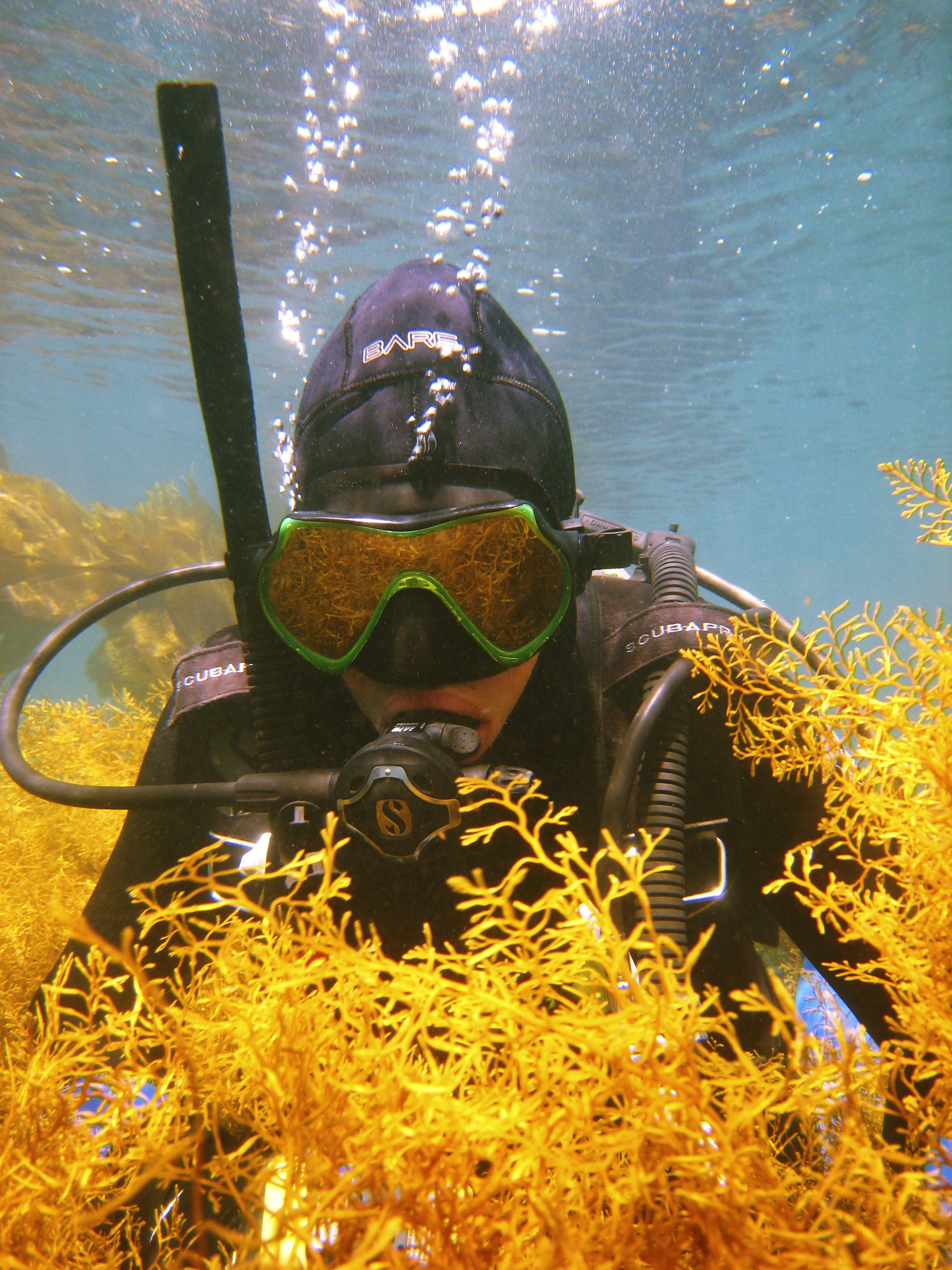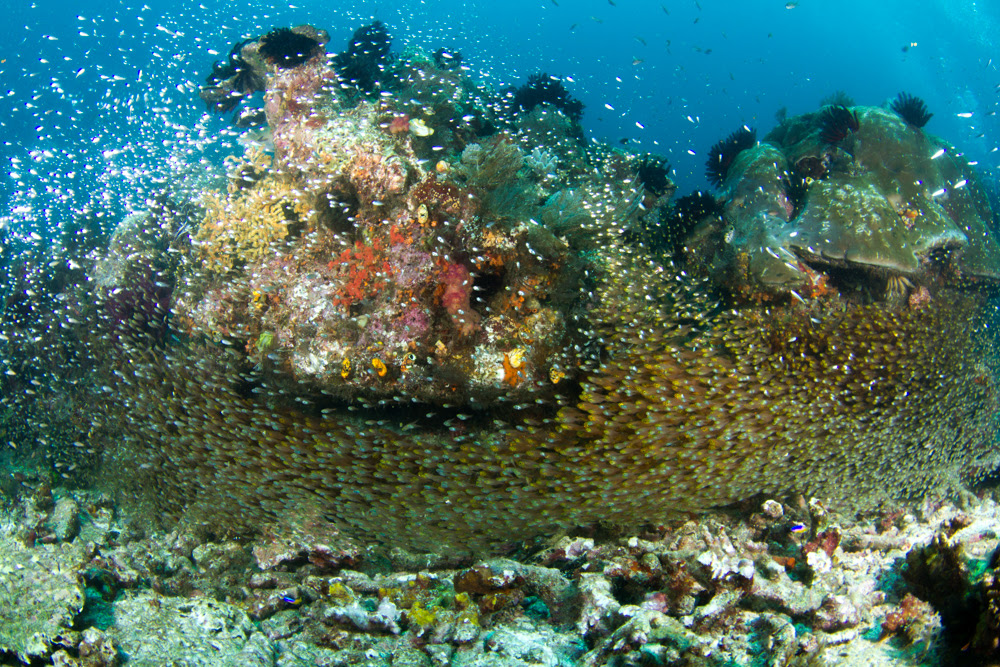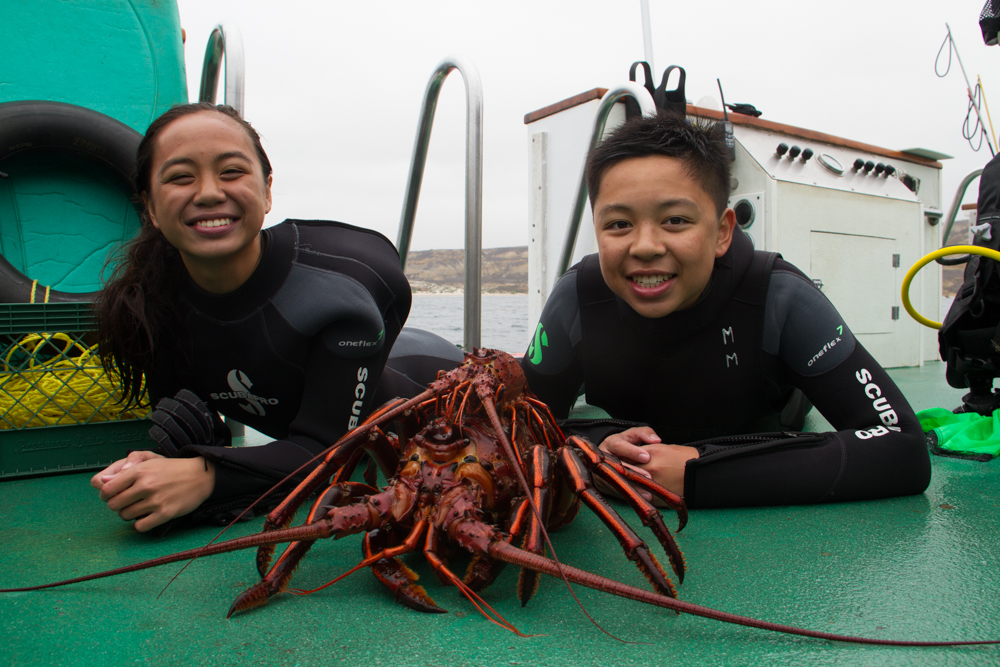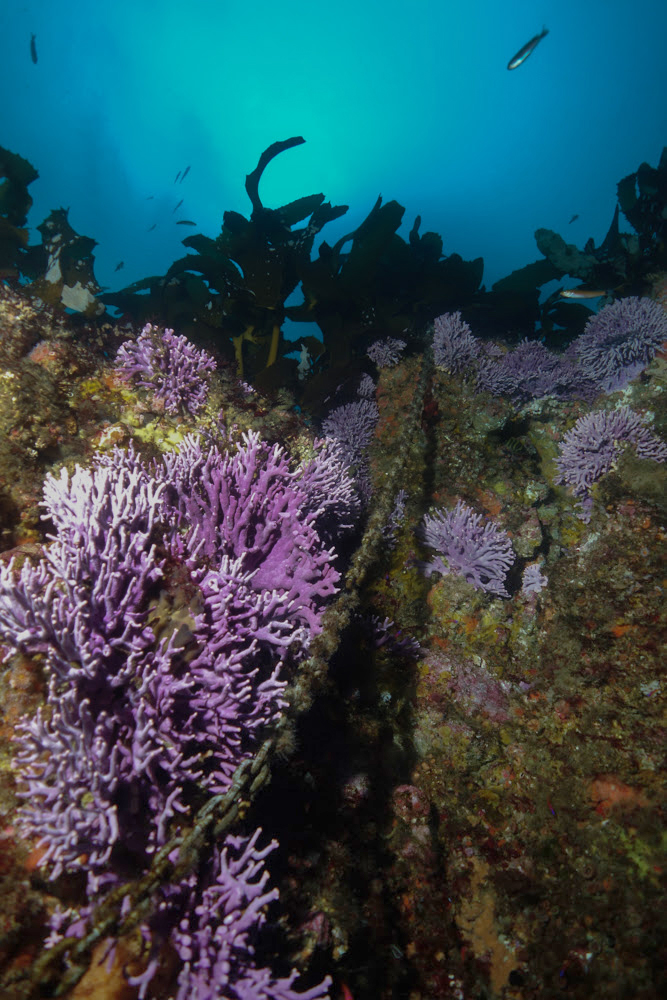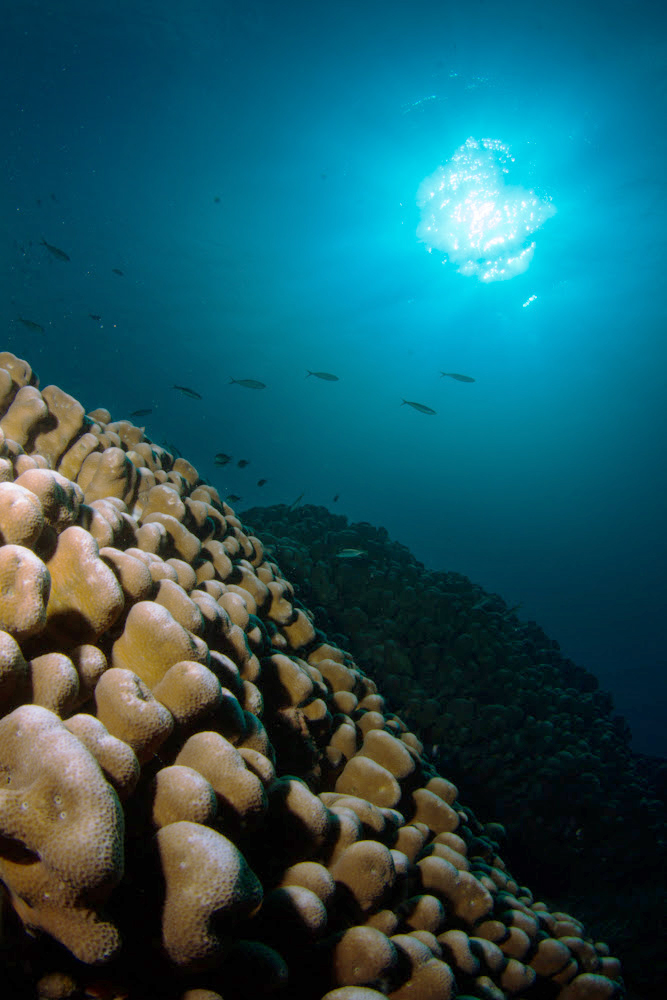Invasion of the Devil Weed and What We Can Do
Invasion of the Devil Weed and What We Can Do
Article by Manuel Chavez, NAUI Instructor at Ocean Safari
Edited by Megumi Itoh
Through the years, the kelp forest of Southern California has faced both natural and man-made challenges. Among them are El Nino and its warm waters, pollution and run-off from our storm drains, and of course the sea urchins. As if these are not enough, there is now a new enemy threatening to deplete our kelp forest. It is sargassum, which is also known as the Devil Weed.
Maunel Chavez, one of the Ocean Safari Instructors, has been involved with Los Angeles Waterkeepers as a volunteer scientific diver for over five years. This organization’s mission is to protect and restore Santa Monica Bay, San Pedro Bay, and adjacent waters. In recent years, they have shifted their focus from urchin removal and relocation (which are being addressed by the commercial urchin divers) to addressing the invasion of sargassum. Actually, these algae have been around for some time, but their recent rapid increase and spread have become a cause for alarm. They are threatening to undermine the kelp forests we have worked so hard to restore.
Three species of sargassum are found in Southern California. Sargassum palmeri has been in our waters for a very long time, and it is now considered native. The other two, Sargassum horneri and Sargassum muticum, are considered invasive non-native species. Initially these two invasive species arrived on the California coast from overseas via cargo ships and oil tankers. From there they spread to Catalina Island and the rest of Channel Islands by way of pleasure boats including fishing and dive boats.
So why are they called Devil Weed and why are we so concerned? The main concern is their aggressive ability to take over the existing environment. They become fertile and ready to reproduce in just six to seven months. They are capable of self-fertilization, meaning each individual has male and female reproductive properties. They grow extremely dense and block sunlight, thereby stealing nutrients from the native vegetation and take over the substrate. By crowding out the native vegetation, it robs food sources from our local invertebrates and fish.
It is interesting to note that both of the invasive species have the same maturation rate to their one-year life cycle. The stage at which they first establish themselves and we start to observe them is called recruit stage. This is usually in the summer and fall. They mature and become fertile during the winter and spring months. They reach senescence in the spring and summer months, when they deteriorate and die off. If we are inclined to harvest this vegetation then it is best done before it becomes fertile (spring and summer months), otherwise we are again helping the sargassum to spread and reproduce. It is also important to note that there may be overlapping generations in a single season.
So what is the answer to this problem? As it stands now, a person who has a California fishing license with ocean enhancement can harvest up to 10 pounds of sargassum in a single day. This is fine for personal consumption, but if the goal is to help our environment, then we are hardly making a dent given the amount if overgrowth taking place. At Los Angeles Waterkeepers, a pilot program is about to take place whereby we will be monitoring the location, species type, density, growth rate and any visual damage already taking place to our native environment. This data is necessary before a proposal can be submitted to the Dept. of Fish and Wildlife for any type of program that will allow for widespread removal.
Ocean Safari would like you to join us in our efforts to protect the kelp forest from the invasion of the Devil Weed. To start things off, we encourage you to participate in the i-Naturalist program. You can sign up and log your observations of these non-native algae on the Sargassum Tracking Map page at http://www.inaturalist.org/projects/sargassum-tracking-map. Your observations will not only contribute to the data collection, but will put you at the forefront of the potentially large scale operation that will allow us to tackle the problem head on.
Being a Responsible Modern Day Hunter
A Modern-Day Hunter’s Responsibilities to Himself and the Next Generation
By: Gabriel Lu
Edited by Garrett Lu
G. Lu Content Writing and PR
I am not a vegetarian and I do not oppose hunting. Occasionally I will even celebrate a catch with friends and family. So, as a hunter, I have gained some insights on this lifestyle that are worth sharing.
We all understand the natural environment is very sensitive and its resources are not inexhaustible. I often demand myself to study the background of each edible marine animal. In other words, if I eat it will it affect other life? Could I be damaging an entire ecosystem?
Current fish and game regulations all have their reasons. Still, we must not only abide by the laws, but instead act one step ahead of them. That is because policymakers may not always have the foresight to prevent catastrophes. Often in the past, people acted too late—only after a species’ extinction are strict regulations put in place to mend wounds. So, as the new generation of divers, we can only immerse ourselves in the environment, observe its behavior and changes, and adjust our standards and conscientiousness beyond the limitations of the law.
On another note I believe adapting to local customs is also an important notion. For instance, a Westerner boards a Chinese junk and joins in on a sumptuous meal with grilled fish. After finishing one side of the fish, he proceeds to flip it over. But this is a taboo! Flipping a fish aboard a junk could make it sink. Thus, taking care to understand and adapt to every locale’s customs is essential to avoiding discrimination and conflict. It is not excusable simply because of ignorance. All the same, we should still uphold the environment as the highest priority, because blindly following customs is not always right either.
For many years, there were many highly experienced California born-and-raised divers participating on my dive trips. They often hunt, not wishing for many fish, but rather using size as the measurement of “right” and “honorable.” Because of these norms they often have disdain for the Asian norm of eating all game, regardless of big or small. So before I dive to hunt, I always tell them: “I hunt medium-sized game for two reasons: For one, I cook by steaming the entire animal; big fish are inconvenient. Moreover, many large fish are like boars in a pig farm, their high sperm count carries genes and so their group’s reproduction depends on them. Killing them may reduce the group’s numbers, or even eliminate it entirely. (When these explanations do not suffice I have no choice but to invoke the Confucian teachings of moderation.) In time, even Westerners gradually begin to hunt medium-size fish. What’s more, many try tasting the fish whole, or at least sharing its head and bones with Asians—lest they waste food by scrapping everything but the fillets. Thus, using an exchange of soft-power communication, we create a harmony between cultures that comprises the customs of the Modern Day Hunter.
Further, before the kill, understanding your own motives is also a must. Do you hunt to satisfy your family and friends’ wish to eat a fresh catch? Or is it for the thrill of the hunt? Humans may have souls, but animals do too. So when you are preparing for a feast, remember where to draw the line. Enough is enough. Using the practice of moderation can be the best way of showing gratitude to the marine environment that sacrificed its precious life for our satisfaction. What’s more, we should know that satisfying the urge to kill is a mentality derived from causing others’ pain. I suppose that comes from primordial instinct. But as the self-proclaimed most intelligent animals on the planet, we should reflect deeply on this.
Wow! This has been quite the monologue. But I should stress that it is not for the sake of preaching. Rather, my hopes are that individuals around the world can exercise mindfulness for the sensitive environment we live in. By adapting to the customs of different cultures, learning about the environment we hunt, and understanding how to care for it, we are taking responsibility for both Mother Ocean as well as the next generation of divers. That is the responsibility of what I call a “Modern Day Hunter.”
Protect Our Reefs
The rare and one-of-a-kind Californian Purple Coral is found in 20 to 50 meters-deep (65 to 160 feet) of water on outer island pinnacles in strong currents. They take hundreds of years to grow to this size. Sadly, every time a boat drops anchor these precious organisms are damaged and destroyed. So because of the need to preserve marine life, Ocean safari Dive team is currently developing a "mooring buoy project" to minimize the impact that traditional anchors have on reefs. I hope that those who agree with this action can offer their support. If interested feel free to contact.


